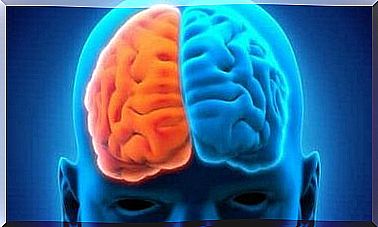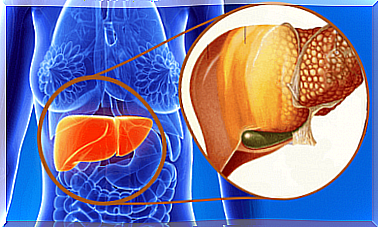Will One Soon Be Able To Diagnose Depression Through A Blood Test?
For the time being, determining depression is done through diagnostic interviews and in some cases imaging tests. Nevertheless, people are currently looking at the possibility of using a blood test in this process. First, though, let’s take a look at what depression looks like.
“I don’t know what’s happening to me. Nothing interests me. All I want is to be alone. Why is this happening to me? At times it seems like I can handle it again, but at other times… even taking a shower is a strenuous effort.”
These words, as well as the phrase “nobody understands me,” are very typical of people with depression. They feel like they can’t find a way to express what is happening to them.
Stigma around depression
They also experience a deep sense of loneliness. That feeling grows even more every time someone utters the following well-known phrase: “ How can you get better if you don’t put in the effort yourself?”
Perhaps that last thought is the most painful. People who suffer from mental illness often feel misunderstood.
In the case of depression, a common belief is that being depressed is weak and cowardly. However, this is not so. Only a strong person can bear the pain they experience.
What you need to move on is the will to live, even if you feel disconnected from the world. This is the greatest proof of your willpower.
What is the reason that we interpret depression in this way? That’s because we view illness as something we can measure and observe. Diseases that cannot be translated into numbers are often downplayed.
Diagnosing depression from a blood test, when possible, will give these people a sense of relief. Finally they will be able to “prove” that their suffering is real and that there is therefore no question of a bad quality or lack of character.
Can you diagnose depression with a blood test?
Scientists at the University of Vienna have already discovered that depression is related to serotonin. This substance is responsible for the production of positive emotions and their regulation.
That is why people with depression often have a lowered serotonin level. So, from this assumption, scientists have begun to work.
Lukas Pezawas leads the investigation. He says they have discovered how serotonin is produced in the blood.
A protein called SERT is arranged on the membrane of the brain cells. It allows the transport of serotonin. The most important discovery is that the protein is also present in other organs, such as the gut and blood.
In addition, this protein works in those organs in the same way as in the brain. Thanks to this discovery, a much more extensive “depression network” can be mapped out than previously thought possible.
As a result of this research, it will be possible to determine what happens in the brain based on the amount of serotonin in the platelets. To make sure this is true, they compared the results of the blood analyzes with imaging medical research, such as magnetic resonance imaging (MRI).
So the chance of a revolution is increasing by the day
The network of a depression is called an “automatic mode network”. So he is, as it were, on autopilot. When such a network is confronted with complicated ideas, it no longer works properly. However, when the brain rests, it is activated.
So what exactly happens during a depression? The network no longer works as it should, causing negative automatic thoughts to appear more and more often.
According to the research, it won’t be long before diagnosing depression with a blood test will be possible.
This way of diagnosing will give the disease back its dignity, for there will be no more doubts about it. People with depression will no longer have to endure all kinds of value judgments.
They will no longer be accused of lack of character, of being weak or of not knowing how to face life.
One final note
Many patients complain about the reactions of others to their depression. The people around them think they have come to this point of their own free will. Another frequently heard comment is that you are not making enough effort.
If we look at depression from the reactions of others and how the depressed people feel about it, a blood test for the diagnosis of depression can change all this. After all, depressed people will be able to prove that their problem is real and true with a physical examination.
We would nevertheless like to emphasize how important family support is in the case of mental illness. When someone has depression, self-confidence drops. If family members and friends show a lack of understanding for the condition, the problem gets even worse.
You can compare it to turning a broken arm over again. The pain and injury will then get worse. Nobody deserves this.
We also want to emphasize that the black-and-white picture that this new way of depression establishes should not be exaggerated. As with most diseases, it is not the intention here that the results of 1 type of measurement should be decisive.
If someone is depressed, don’t ask for evidence of this — even if this new blood test is integrated into the diagnosis. This undermines the patient’s autonomy. How would you feel if a friend or family member asked you for “proof” when you reported being sick?









